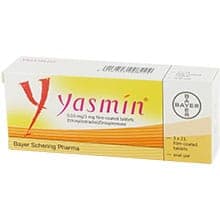Login to your account
- Prescription included
- Genuine medication
- All-inclusive service - No hidden fees
- Free next-day delivery
Contraception
Get contraception with an online prescription
Contraception is how you prevent pregnancy. There are numerous methods available that all work in different ways. If you want to start using contraception, finding the method that fits your lifestyle is important. From pills to patches, there is most likely a method that works for you. You can also order your contraceptive online at euroClinix.
On this page
What types of contraceptives are available? How does hormonal contraception work? What is the combined pill? What is the mini-pill? What is the contraceptive patch? What is the contraceptive ring? What is the morning-after pill? How do hormonal contraceptive methods compare? How do I choose a hormonal contraceptive method? What are the benefits of hormonal contraception? What are the side effects of hormonal contraception? How do I buy contraception online?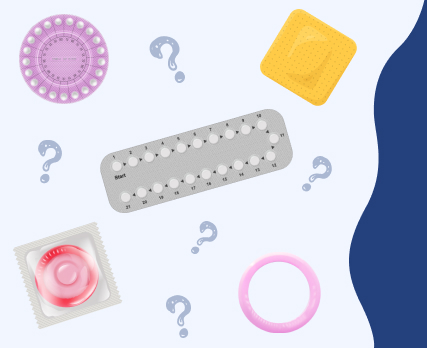
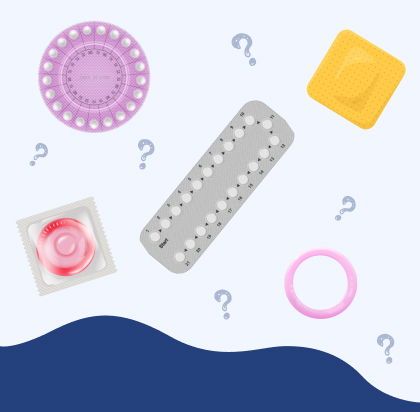
Available Conditions
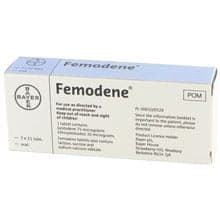
- Single daily dose
- 99% effective at preventing pregnancy
- Can improve PMS symptoms

- Contains a 'third generation' version of progestogen, making it safer for most women
- Over 99% effective at stopping pregnancy
- Proven to make periods lighter, less painful and more regular

- Prevents pregnancy
- Mimics the natural menstrual cycle
- Convenient dosing
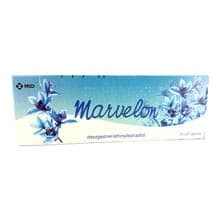
- Over 99% effective
- Reliable daily contraception
- Eases period discomfort

- Effective hormonal contraceptive pill
- Over 99% effective when used correctly
- Lower dose of oestrogen
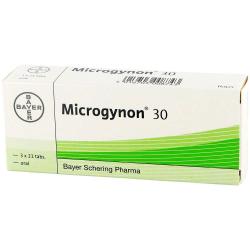
- Relieves period cramps
- Once daily dose
- Over 99% effective when taken correctly
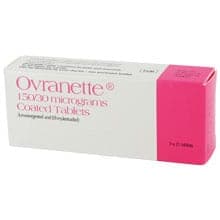
- 99% effective at preventing pregnancy
- Reduces symptoms associated with PMS
- Easy to take over for 21 days followed by a seven-day break
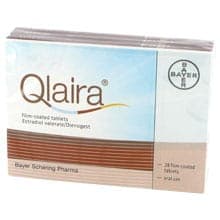
- Regulates menstrual cycle
- 99% effective at preventing pregnancy
- Can treat heavy menstrual bleeding
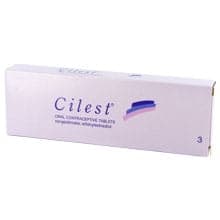
- Provides protection from pregnancy in a convenient daily tablet
- Proven treatment for endometriosis and premenstrual symptoms
- Taken for 21 consecutive days, followed by a seven day break
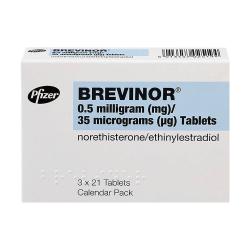
- 99% effective at preventing pregnancy
- Can alleviate menstrual symptoms
- Available in three-month and six-month supplies
What types of contraceptives are available?
There are many types of contraception available for both men and women. They can be categorised into four main groups based on how they work.
- Barrier methods of contraception - Physically prevent sperm from entering the vagina.
- Hormonal contraceptives - They work by altering the natural levels of sex hormones in the reproductive system.
- Long-acting reversible contraception (LARC) - Contraception that lasts from months to years after insertion.
- Permanent contraception (sterilisation) - A procedure that both men and women can have that prevents them from having children.
See below for an overview of all the types of contraception available and what category they fall under.
| Barrier methods | Hormonal methods | LARC | Permanent methods |
|
|
|
*Also protect you from STIs (sexually transmitted infections).
There are also ways to naturally protect yourself from pregnancy, such as the pull-out or natural family planning methods.
Hormonal methods are some of the most popular methods due to their effectiveness and simplicity. You can also order hormonal methods online.
How does hormonal contraception work?
Throughout your menstrual cycle, your body undergoes natural changes to prepare for pregnancy. A woman's cycle is governed by two hormones: oestrogen and progesterone. Both hormones are responsible for different processes.
- Oestrogen is responsible for ovulation, the process in which your ovaries release an egg into your fallopian tubes.
- Progesterone is responsible for two processes. It reduces the mucus lining in the cervix so sperm can easily reach a fertilised egg. The hormone is also responsible for thickening the womb's lining so a fertilised egg can easily implant itself.
These hormones naturally rise at different points in your cycle, which triggers these processes.
Hormonal contraception contains synthetic versions of oestrogen and progesterone. This alters the levels of your natural hormones so that they don't fluctuate. Doing so prevents these processes from happening and prevents pregnancy.
Some contraceptives contain both synthetic oestrogen and progesterone, which means both oestrogen and progesterone processes are affected. Other contraceptive types just contain synthetic progesterone.
What is the combined pill?
The combined pill (the pill) is one of the most popular hormonal contraceptives. They are called combined pills because they contain both oestrogen and progesterone.
You take a pill at the same time each day, and it is over 99% effective at preventing pregnancy. The only way the efficacy is reduced is if you take a pill late or you miss a pill.
There are two main types of pills:
- Monophasic pills (e.g. Microgynon & Yasmin) - Contain the same dose of hormones across the pill pack.
- Multiphasic pills (e.g. Logynon & Qlaira) - Contain two or more doses of hormones across the pill pack to replicate your natural cycle.
Both types of pills are available as 21-day and 28-day pills. The 21-day pills contain 21 hormonal tablets, whilst the 28-day pills contain an additional 7 inactive pills that contain no hormones. The combined pill Zoely is the exception as it contains 24 active pills and 4 inactive pills.
There are many different types, and the best contraceptive pill for you depends on your lifestyle and medical history.
Want to learn more about the pill?
Find out more hereWhat is the mini-pill?
The mini-pill or the progestogen-only pill (POP) is another oral contraceptive option. Unlike the combined pill, it only contains synthetic progesterone. This means it is suitable for women who cannot take oestrogen whilst being just as effective.
You take one tablet each day. In addition, you do not take a pill-free break with the mini-pill. You take each strip back to back with no break. You should get your period as normal throughout each pack, but it’s common for women to have irregular periods or none at all.
Want to learn more about the mini-pill?
Find out more hereWhat is the contraceptive patch?
The contraceptive patch is a patch which you apply to the skin each week. The only brand available in the UK is the Evra patch. The patch contains oestrogen and progesterone and works similarly to the combined pill.
Each week, place a patch on your buttocks, stomach, upper arms or upper back. Then, after 7 days, change your patch. You do this for 3 weeks. On the 4th week, you don’t use a patch. This allows for a withdrawal bleed. However, you can skip the patch-free week and immediately use a new patch if you don't want a period.
Want to learn more about the patch?
Find out more hereWhat is the contraceptive ring?
The vaginal contraceptive ring is a unique method of hormonal contraception. The ring is a small flexible device that releases synthetic oestrogen and progesterone. It releases hormones gradually throughout the month and, for that reason, is considered a low-dose hormonal contraceptive. The only brand available in the UK is the NuvaRing.
You insert each ring into the vagina and leave it in for 3 weeks. Then, after 3 weeks, you take the ring out and wait 7 days before putting it in a new one. If you want to skip your period, you can keep the ring in continuously and change it every 3 - 5 weeks.
Want to learn more about the ring?
Find out more hereWhat is the morning-after pill?
The morning-after pill is a type of emergency contraception. Unlike the other options on this list, it is not meant to be used as your main method of contraception. It is only meant for occasional incidents where your usual contraception failed.
There are two types of morning-after pills available:
- Levonelle - Contains synthetic progesterone and works by delaying ovulation. You can take it up to 3 days after unprotected sex.
- ellaOne - Contains an ingredient that alters progesterone which works by preventing ovulation. You can take it up to 5 days after unprotected sex.
Ensure you take it correctly. Otherwise, the effectiveness of the morning-after pill could be reduced. The later you take it, the less likely it will prevent pregnancy.
Need emergency contraception?
Start yourconsultation today
How do hormonal contraceptive methods compare?
See the table below for an overview of all the hormonal methods available.
| Combined pill | Mini-pill | The patch | The ring | Emergency contraception | |
|---|---|---|---|---|---|
| Examples |  (e.g. Yasmin, Microgynon or Cilest) (e.g. Yasmin, Microgynon or Cilest) |
 (e.g. Cerazette or Noriday) (e.g. Cerazette or Noriday) |
 Evra patch Evra patch |
 NuvaRing NuvaRing |
 (e.g. ellaOne or Levonelle) (e.g. ellaOne or Levonelle) |
| Ingredients | Oestrogen & progesterone | Progesterone | Oestrogen & progesterone | Oestrogen & progesterone | Ulipristal acetate or Levonorgestrel |
| How to take | Once daily for 21/24 days, then take a break or inactive pills for up to 7 days* | Once daily. No pill-free breaks | Apply once a week for 3 weeks, then have a patch-free week | Wear for 21 days and then remove for one week. | Take one tablet within 3-5 days of unprotected sex. |
| How it works | Prevents ovulation, thickens cervical mucus and alters the womb lining | Thickens cervical mucus and alters the womb lining | Prevents ovulation, thickens cervical mucus and alters the womb lining | Prevents ovulation, thickens cervical mucus and alters the womb lining | Prevents ovulation |
*The number of hormonal and non-hormonal days depends on the brand.
How do I choose a hormonal contraceptive method?
When all the hormonal methods are equally effective, how do you choose? There are a few factors you should consider when picking a hormonal contraceptive.
The first thing to consider is the side effects. Suppose you are at a high risk of complications or you’re worried about side effects in general. In that case, you may want to consider taking a progesterone-only contraceptive, as these have a lower risk of side effects.
The second factor is whether you’re comfortable inserting something into yourself. If you find that prospect uncomfortable, you should not use the vaginal ring.
The final factor to consider is you and your lifestyle. Will you remember to take something daily, or prefer to take something less regularly? You must pick the right method, as taking it correctly is key for it to work.
Missing a pill or putting your patch on late could affect your contraception’s efficacy.
What are the benefits of hormonal contraception?
The main benefit of hormonal contraception is that they reliably protect you from pregnancy. However, they have several additional practical and long-term benefits.
They:
- are simple to use
- can easily be stopped or changed if you want to change contraception or try for a baby
- can make your periods shorter, less painful and less heavy
- do not physically “interrupt” sex
- can reduce symptoms of PMS (premenstrual syndrome)
- may also reduce the symptoms of certain disorders like PCOS or endometriosis
However, hormonal contraceptives do not protect against STIs or STDs. You will need to use a condom as well to fully protect yourself.
What are the side effects of hormonal contraception?
Hormonal contraception can cause some side effects. This is especially true within the first few months of using it. Thankfully, the most common side effects are mild and easily treatable.
Common side effects include:
- headaches
- sore breasts
- acne
- changes in sex drive
- weight gain
- mood changes
- feeling sick
- irregular bleeding or spotting
If any of these side effects become worrisome or persist, you may need to change contraceptives. Speak to your doctor if you are concerned.
Who has a higher risk of experiencing side effects?
Several risk factors can slightly increase your risk of side effects. Risk factors include:
- smoking
- drinking alcohol
- a history of blood clots
- a history of breast cancer
- being overweight
- having high blood pressure or cholesterol
- being 35 or older
Your doctor may prescribe you a low-risk contraceptive such as the mini-pill or the IUD to mitigate the risk. If you are at a particularly high risk, hormonal contraception may not be your best option.
Is hormonal contraception safe?
The subject of safety in hormonal contraception is a big discussion.
One of the conditions that hormonal contraception can increase the risk of is blood clots. However, the risk is still low. There is a 0.05% - 0.12% risk of a blood clot in women using a combined hormonal contraceptive. This is compared to a 0.02% risk in women who have never used a hormonal contraceptive and are not pregnant.
Another complication of hormonal contraception is cancer. It specifically increases the risk of breast and cervical cancer. Like blood clots, the risk increase is still low at around 7-10% for less than 5 years of use. The risk also reduces again once you finish using it. Hormonal contraceptives can also reduce the risk of some cancers, including ovarian and endometrial cancer.
Living a healthy lifestyle is the best way of reducing your risk of experiencing any complications. You should always consult your doctor if you are unsure about the risks.
How do I buy contraception online?
If you already use a contraceptive, you can reorder it online from euroClinix. Simply pick the contraception you use and fill out the quick online medical questionnaire. Your answers will be reviewed by one of our online doctors to ensure it’s safe for you to take. Then, once approved your order will be sent with free next-day delivery in discreet packaging.
- What types of contraceptives are available?
- How does hormonal contraception work?
- What is the combined pill?
- What is the mini-pill?
- What is the contraceptive patch?
- What is the contraceptive ring?
- What is the morning-after pill?
- How do hormonal contraceptive methods compare?
- How do I choose a hormonal contraceptive method?
- What are the benefits of hormonal contraception?
- What are the side effects of hormonal contraception?
- How do I buy contraception online?
Further reading

Can you use hormonal contraception after 40?
Reviewed by Dr. Caroline Fontana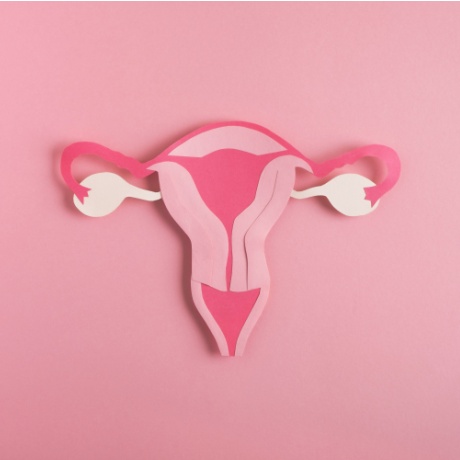
What are the side effects of the desogestrel mini-pill?
Reviewed by Dr. Caroline Fontana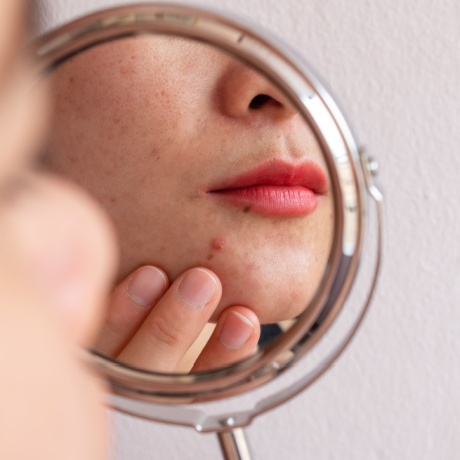
Understanding and managing side effects of the pill
Reviewed by Dr. Caroline FontanaSelect
medicationFill out a short
medical formDoctor issues
prescriptionMedication sent
from pharmacy


